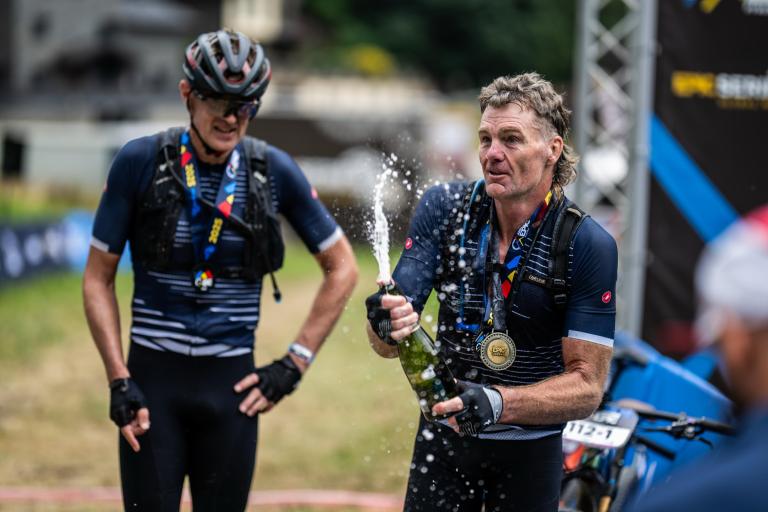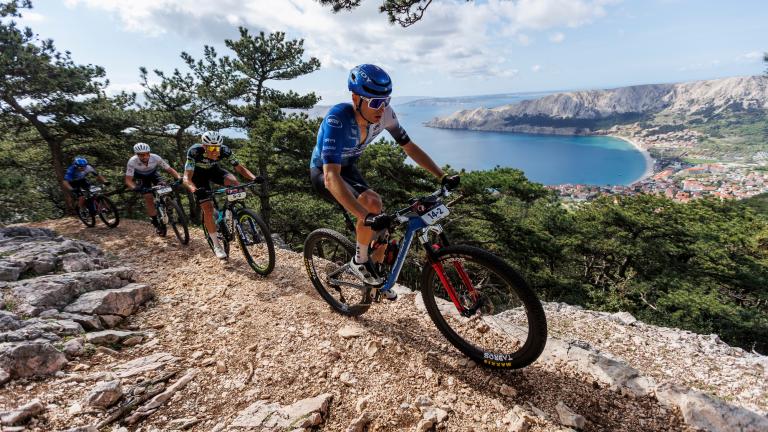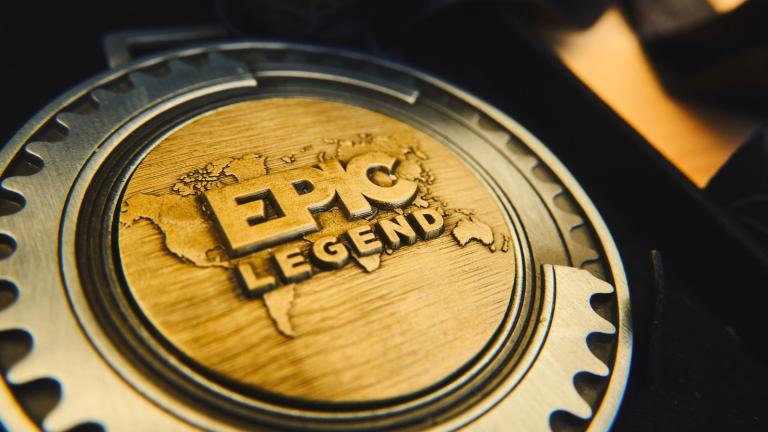From Farm Tracks to Epic Legend: Meet Robert Duff

Robert’s journey from riding bikes on a rural New Zealand farm to becoming the 500th Epic Legend is nothing short of inspiring. In this candid interview, he shares the highs, lows, and lessons from years of racing in the world’s toughest mountain bike stage events — and what keeps him pedalling after all these years.
Robert’s journey from riding bikes on a rural New Zealand farm to becoming the 500th Epic Legend is nothing short of inspiring. In this candid interview, he shares the highs, lows, and lessons from years of racing in the world’s toughest mountain bike stage events — and what keeps him pedalling after all these years.

Robert, could you tell us a bit about where you grew up in New Zealand and how it shaped your love for the outdoors?
I grew up in a small country town called Taihape. We lived on a farm, where I learned to ride horses and motorbikes. I also used to ride a pushbike around the farm to go fishing for eels in the creeks. That rural lifestyle definitely sparked my love for the outdoors.
When did you first discover mountain biking, and what drew you to the sport?
After giving up rugby, I needed another sport to stay active. I took up cycling because it was a great way to exercise and explore the country roads. A few years later, a friend who was into mountain biking lent me a bike and took me to a mountain bike park. I enjoyed it so much I went out and bought my first real mountain bike. From there, I’ve just loved the fun of mountain biking and adventure riding.
Who or what inspired you to take mountain biking more seriously and even race the Untamed in 2014?
After enjoying racing in New Zealand—road cycling, Ironman, and mountain biking—a friend suggested we take on a big challenge. We entered the Absa Cape Epic via the lottery, and that’s when the journey really began. Our first Epic didn’t go well—my partner didn’t finish—so we came back the next year. Then stage races became our thing. The Swiss Epic had amazing scenery and trails, and the motels and food were great. I wanted to earn the Legend badge, so Andorra looked like a great event to take on. It was very challenging but a great experience.
How do you balance training and racing with work, family, or other commitments?
It’s a huge commitment to get to the Epics. A lot of spare time goes into training. I might work a 10-hour day at Fonterra and support my co-owned business, My Ride Palmerston North—and then head out for a 4 to 5-hour bike ride. It’s tough on family life and time, but it’s all worth it to cross that finish line and actually enjoy the ride and the racing.
What keeps you motivated to keep riding and racing after so many years?
Keeping mountain biking fun. Staying fit enough to enjoy the uphills—and having a blast going down! I also get inspiration from our My Ride customers. They help keep me focused and motivated, and I enjoy encouraging them to reach their goals.
Have you ever had a moment on the bike that completely changed how you see the sport?
After finishing my first Cape Epic and seeing the time gap between myself and the elite riders, I gained a lot of respect for how much they must sacrifice to perform at that level. Riding parts of the UCI course in Andorra also showed me just how easy the elite riders make very technical terrain look.
What do you remember most vividly about your very first Absa Cape Epic in 2014?
Riding up some of the hills and looking into the distance to see this huge line of riders zigzagging their way up—it was amazing. Also, the challenge of motivating myself at the start line after three days of riding, when my legs were saying “no more.” But once you get going, it’s a great feeling.
How does the Andorra Epic compare to the other Epic Series races you’ve done?
Andorra had very different terrain. The climbs were tough for me due to the altitude, but the scenery was beautiful. The downhills were fun and flowing, while the rocky, technical sections were very testing on both the bike and the body. Personally, I enjoyed Swiss and Cape a lot more.
What made you and Glenn team up as the Palmy Boys, and how has that partnership evolved over the years?
We both had similar goals and rode well together on the road bikes. The first two Epics really tested our biking partnership, but we learned how to read each other without even having to talk. That really helps in team stage races—no point pushing your partner if they’re not feeling their best.
What stands out to you most about the Epic Series community?
Mainly the friendly banter on the course. After a few days, you start seeing the same riders each day, and it’s great to chat with other like-minded people.
Can you recall a moment from any Epic Series race that was particularly memorable or life-changing?
Day 5 of Cape Epic 2025. The heat was intense. I felt totally exhausted, and the relief of crossing the finish line was unforgettable. It was probably the hardest—and most memorable—day I’ve ever had on the bike.
How important is teamwork and camaraderie in races like the Epic Series?
It’s the most important part of the race. You’ve got to work together and communicate. There’s no point in trying to race each other.
How do you see the future of mountain biking and Epic Series events evolving?
I think the sport will keep growing. More and more people are enjoying mountain biking.
With only the 4Islands Epic left, do you have plans to take that on someday?
Yes, we’re considering it—maybe next year.
How do you see your involvement with mountain biking evolving in the coming years?
I still enjoy local MTB club races and longer races around New Zealand. I’d also love to run more community MTB events through My Ride Palmerston North—to educate, inspire, and keep the legend going.
What advice would you give to riders hoping to become Epic Legends themselves?
It definitely pays to commit fully and do the training—that makes the race so much more enjoyable. Try to team up with someone who’s at a similar level to you.
Looking back, what does becoming an Epic Legend mean to you personally? And what did this journey demand from you along the way?
For me, it means finishing and achieving the Legend series—something very few people have done. Crossing the finish line at each event was such a great feeling. But it demands real focus and a reason to keep training.
How did it feel to finally complete the Andorra Epic and secure your place as the 500th Epic Legend?
It was amazing—a real sense of achievement. I’m always happy when the final day is done.
Finally, if you could inspire one message to all Epic Series riders, what would that be?
When everything feels hard—just keep pedalling.



![Two bikers in dense woods [Andorra MTB Classic-Pyrenees]](/sites/default/files/styles/coh_medium_landscape/public/2025-05/legends1-min.jpg?h=094f39d6&itok=riAOxwns)
![Barnard and Beuchat riding on team Velosure with a large mountain in the backdrop [Swiss Epic]](/sites/default/files/styles/coh_medium_landscape/public/2025-05/Epic1-min.jpg?h=69f2b9d0&itok=1mlU44oX)